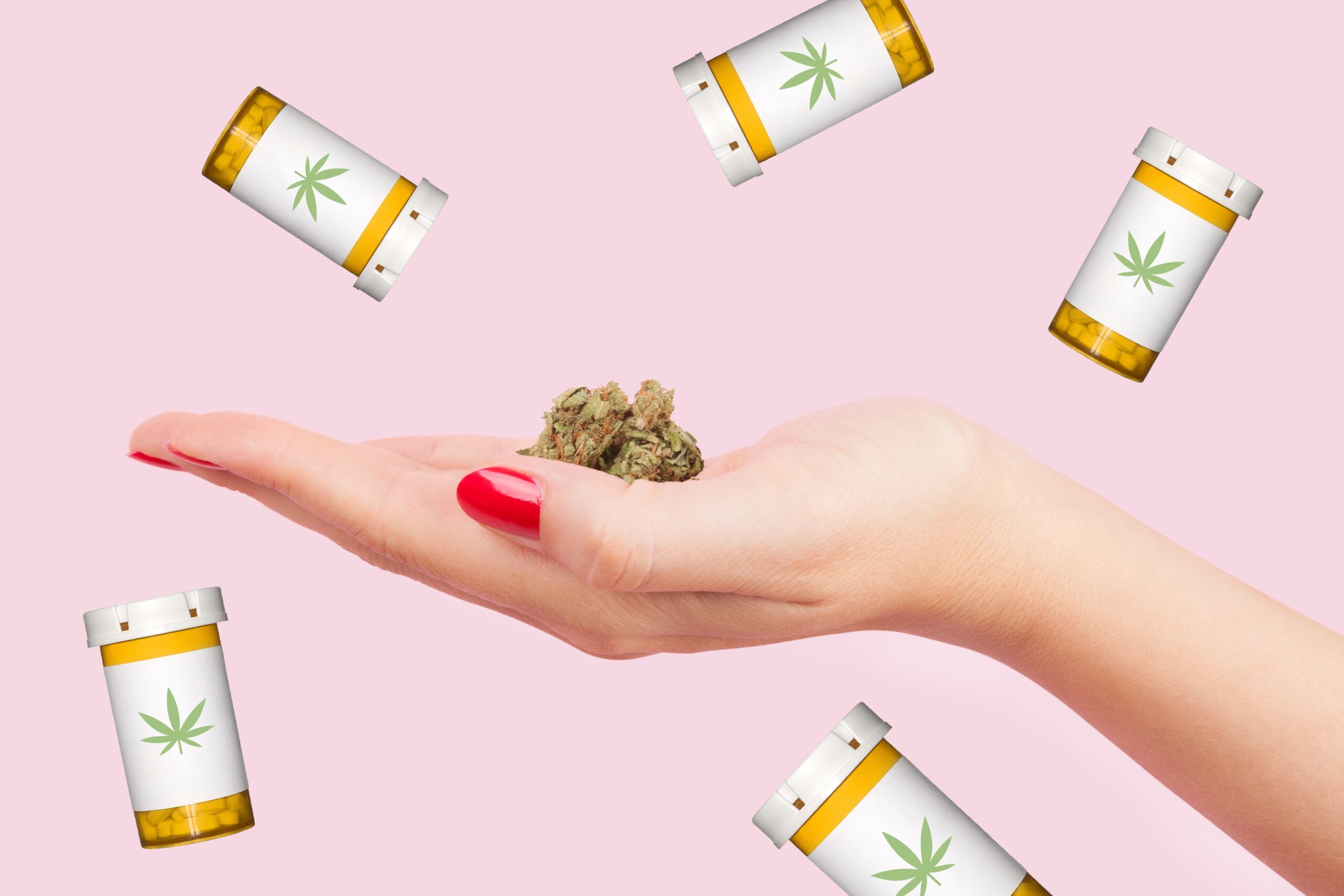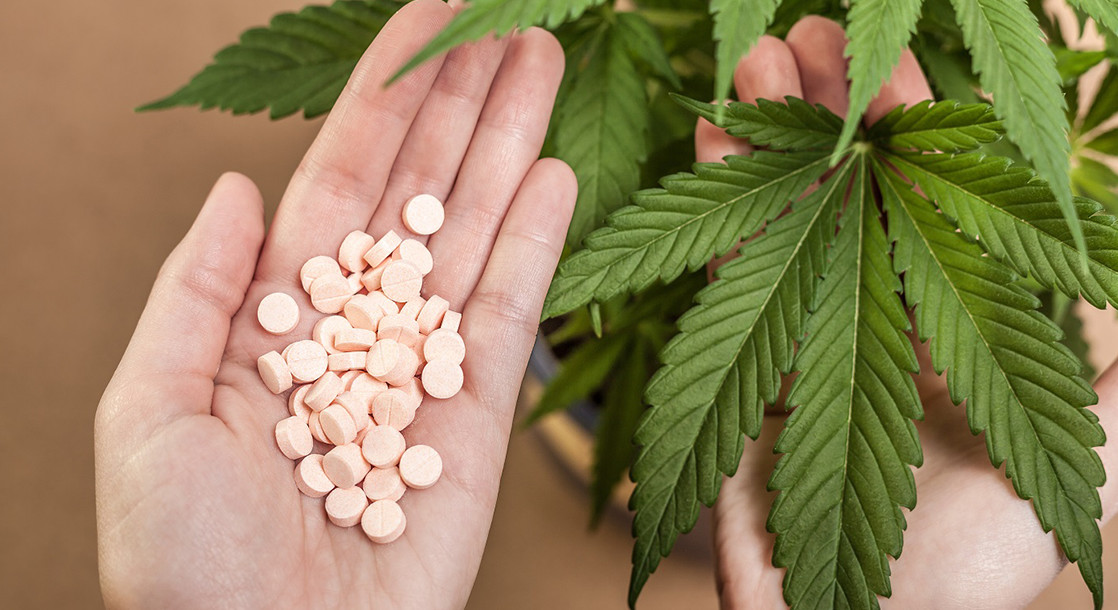Last week, a Canadian company, CB2 Insights, released a report showing chronic pain may no longer hold the top spot for medical cannabis conditions. For years, pain held that title, but the crown could now belong to mood disorders, which includes—but isn’t limited to—stress, anxiety, depression, and bipolar disorder.
The report’s findings may seem obvious. A lot of tokers rely on cannabis to chill out. But due to the unpredictably of mental illness with weed, state governments have kept mood disorders – with the exception of PTSD – off the roster.
“We continue to hear this notion that there isn’t enough data,” said Dan Thompson, CB2 Insights’ chief marketing officer, to MERRY JANE over the phone. “That’s how this study bore out.”
The Study
The study assessed 463 patients across four states – Maine, Delaware, Massachusetts, and Connecticut – for one month. Of the patients surveyed, 161 of them, or nearly 35 percent, said they used medical cannabis for mood disorders like ADHD, anxiety, or PTSD. Coming in at a close second, 33 percent of those surveyed said they used cannabis for chronic pain conditions, such as arthritis.
Another 15 percent reported taking cannabis to help with insomnia. About 3.5 percent said they took cannabis for wasting disorders, epilepsy, Parkinsons, or obsessive-compulsive disorder.
Asked whether his team found the results surprising, Thompson replied, “We never go into any of our reports with a set thesis,” Thompson said. “But it was certainly surprising.”
Founded in 2014, CB2 Insights collects and analyzes data to bring credible, evidence-based information to cannabis companies, regulators, and consumers. The umbrella company owns Canna Care Docs, a US-based, multi-state cannabis education and evaluation network that sees 65,000 patients a year. For this report, the company utilized software at its clinics to gather data on patients’ primary and secondary reasons for requesting medical cannabis.
Right now, 33 states and Washington have some kind of medical weed program. Unfortunately though, every state is different. Some states only recognize terminal illnesses as qualifying conditions. Most states list chronic pain conditions as qualifiers. No state lists mood disorders, except for the handful of jurisdictions that allow cannabis for PTSD. In Massachusetts and Maine, two of the four states included in the report, doctors can write cannabis prescriptions for just about any condition.
Massachusetts and Maine Made the Study Possible
In a follow-up email to MERRY JANE, Thompson explained how discrepancies between state cannabis laws affected the study’s results. Because patients and doctors can be transparent in Massachusetts and Maine, they can openly report data about using cannabis for mood disorders.
“Those conditions bested, though only slightly, the numbers for chronic pain and other qualifying conditions,” he wrote. “If Massachusetts and Maine were removed from the study, or data from more restrictive states such as Montana or Arkansas were included, the outcome would change.”
The report’s findings couldn’t come at a better time. Cannabis could mitigate the human costs of treating mood disorders in the US. According to the CDC, the number of suicides nationwide jumped an average 30 percent from 1999 to 2016. In some states, like Kansas and Utah, suicides increased almost double that, by nearly 60 percent.
Currently, conventional medicine for mood disorders remains limited to psychological therapies, mood stabilizers, and antidepressants. Since 1999, antidepressant prescriptions have increased 65 percent. Roughly 15 million Americans take antidepressants regularly. These drugs have a myriad of side effects, such as irritability, insomnia, nausea, dizziness, and—ironically enough—anxiety or suicidal thoughts.
Could this be the first step toward adding more mental or mood disorders as qualifying conditions for medical weed? CB2 Insights never wants “to be seen as an advocate in terms of what a regulatory body should do other than taking a step back and truly analyzing the data that is available to them,” Thompson said. “To make decisions on real, tangible data that does, in fact, exist.”
A Doctor’s Thoughts on Cannabis and Mood Disorders
Dr. Eugene Schoenfeld, a psychiatrist based in San Raphael, California, told MERRY JANE during a phone call that regardless of the report, doctors should receive more leeway to treat mood disorders with cannabis.
“I don’t think states should be in the business of telling doctors what medications we should use and for what purposes,” he said. “They don’t do that for other medications. Why are they doing that for cannabis?”
Schoenfeld does not consider himself a cannabis doctor, though he has recommended medical cannabis for his patients in the past. He’s got a long history with weed community, too.
In the 1960s and 1970s, Schoenfeld penned a column for the underground newspaper Berkeley Barb under the moniker “Dr. Hip,” giving honest, blunt health advice to hippies. Usually, the advice covered topics like sex and drugs. His most famous patients included counterculture guru Timothy Leary and the gonzo writer Hunter S. Thompson.
Schoenfeld said he began writing weed recommendations as soon as California law allowed it, yet today he rarely if ever writes for it because of the state’s recreational, or adult-use, market. No doctor’s note required.
The CB2 Insights report didn’t surprise Schoenfeld, either. Using cannabis for mood disorders is “a very common use for marijuana,” he said. “When people are using it in the so-called recreational way, they use it in the same way that some people may use alcohol after a stressful day at work, with just one or two drinks.
“And it’s not as addictive a drug as alcohol,” he added.
But Schoenfeld cautions against tossing out the doctor’s pills for a joint. He noted two schizophrenic patients he treated who said cannabis helped them deal with their anxiety. They still required the typical regimen—antipsychotics, mood stabilizers, and the like—alongside their herb.
And they needed to do it under the guidance of a trained medical professional.
“Cannabis can make certain mental illnesses worse,” Schoenfeld said. “Does it happen often? No. But neither is it extremely unusual.”











